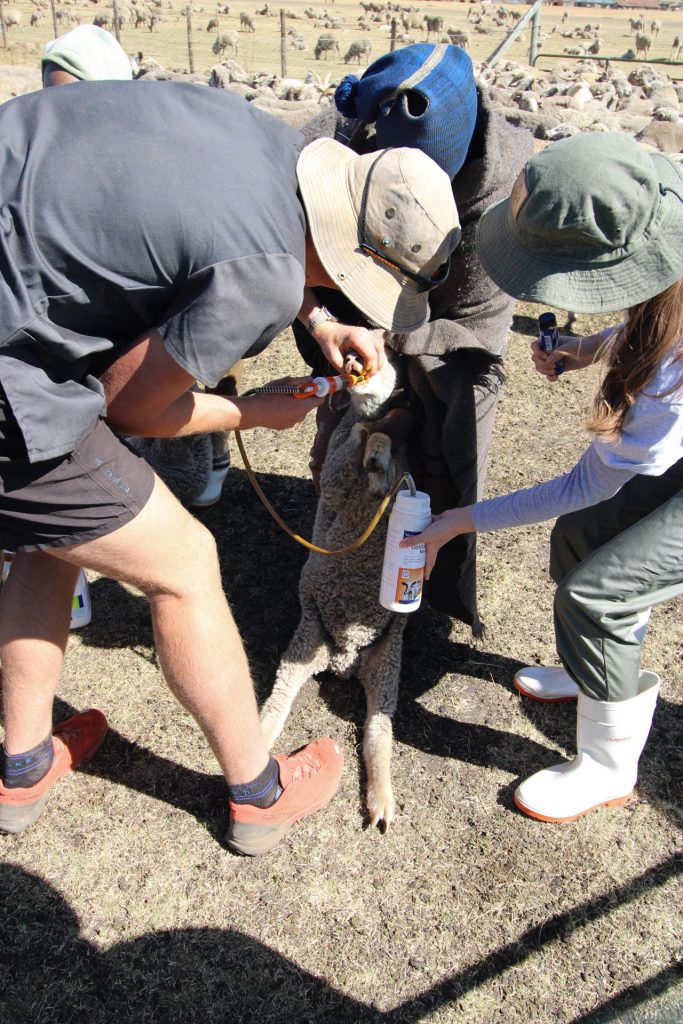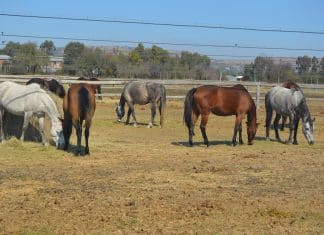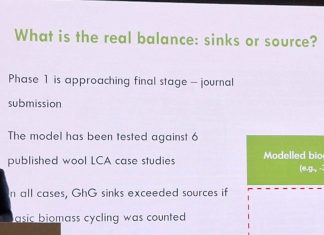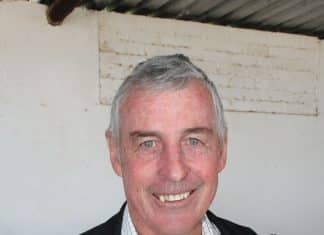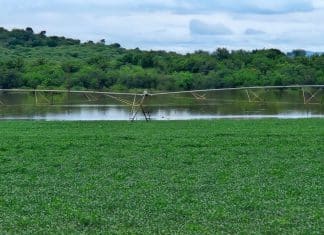Estimated reading time: 5 minutes
The Semonkong Hospital Trust is a faith-based, interdenominational organisation that has been hosting an annual week-long veterinary outreach in Semonkong, Lesotho, since 2006. During this week, veterinary surgeons and students, project partners and volunteers come to Semonkong to provide primary animal healthcare, treat animals, and educate producers in better animal husbandry.
The Trust also envisages erecting a unique, eco-friendly, financially self-sustainable, 120-bed training hospital in Semonkong, coupled with holistic community development projects.
The 2024 outreach is scheduled for 22 to 28 September. According to Solitha Kruger, a veterinary student at Onderstepoort and a member of the Trust’s small-stock committee, the biggest challenge the people of Semonkong face is a lack of knowledge, coupled with a vastly different cultural approach to animal husbandry. A major aspect of the outreach is convincing residents of the value of good animal husbandry practices.
Learn about the importance of animal welfare here.
Making a difference
“Usually, we are a team of 80 people consisting of 60 veterinary students, 20 veterinarians and other volunteers. We have our headquarters in Semonkong, but we also establish three or four satellite stations further afield to enable more people to bring their animals in for treatment. The underlying objective of the outreach is to spread the gospel, and the best way we in the veterinary profession can do that is through the animals.”
Because the Trust is a voluntary, non-profit initiative, it wholly depends on contributions and public support. Their success, says Kruger, is entirely dependent on the goodwill of caring people who contribute financially.
As part of the outreach, the team visit the Semonkong children’s home every year to spend a day with the children. There is a great need for clothing and the team tries to bring as much donated clothes along as possible.
“I would say that two of our greatest needs, apart from financial support, are vehicles, especially trailers to transport equipment and medicine, and children’s clothing.”
The 2023 veterinary outreach was led by Wolfgang Beyer and co-ordinated by Banyane Makwebu. Since 2006 it has grown into a hugely successful outreach programme. Each successive year has seen an increase in the number of animals treated and an improvement in the animal health in the area. The 2023 outreach team managed to treat over 22 000 animals, a record number.
In 2023 animals that were treated included:
Horses
An estimated 2 500 horses and donkeys were dewormed and examined by the team. Although the condition of the majority of the horses was reasonable, singular cases of emaciated animals were presented. The number of saddle sores that were treated was disconcerting. Close to a thousand horses were treated for saddle sores, ranging from mild to severe.
The high incidence of saddle sores appears to be due to a lack of decent saddles. The saddles are old, ill-fitting, and a lot of them have broken trees. Tack and especially saddles are not easily available in the area, and it is strongly recommended that this problem be addressed. Thirty-seven horses and donkeys were castrated. The condition of the hooves was generally good.
Small stock
The number of small stock treated almost doubled from the previous year. A total of 14 555 sheep and goats were dewormed. The average sheep body condition score is 2/5 at best. Nutrition is an issue, but difficult to evaluate since it is their dry season.
Clinical cases consisted mostly of fractures and some vaginal prolapses due to tails that were docked too short. Acute traumatic wounds were treated, but there were also many chronic cases, some of which had healed on their own. The many broken bones can be attributed to poor nutrition, rough terrain, and the throwing of stones to herd the sheep.
Pigs
The outreach attained new ground when 13 pigs were dewormed and de-fleed. The pigs were well looked after, in good condition, and surprisingly easy to handle.
Cattle
A total of 4 914 cattle received injectable ivermectin for deworming and of this number, approximately half were also given vitamin and mineral boosters. Considering the time of the year, the overall condition of the animals was exceptional.
As with the sheep, some acute and chronic wounds and abscesses were cleaned and disinfected. Most clinical cases included chronic wounds and fractures, with poor prognoses for healing. This is another point of education to be considered, since it was near impossible to convince the producers to slaughter their chronically lame animals, despite the animals’ inability to work.
Dogs and cats
A total of 556 dogs and eight cats were dewormed and received tick and flea treatments at the various small animal stations. A total of ten sterilisations were performed, as well as six castrations and four ovario-hysterectomies. The community is still relatively uninformed about the benefits of sterilising their animals, or they attempt to sterilise the animals themselves, with dire results.
Most clinical cases included chronic wounds and fractures, which were cleaned and disinfected. The farmers explained that the wounds are often incidental when the dogs are accidentally hit by stones used to herd livestock.
For more information, contact Solitha Kruger on 081 043 0856. – Izak Hofmeyr, Plaas Media

